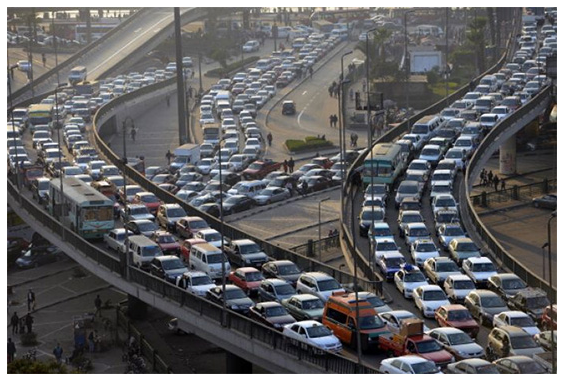Covid 19 and the new normal for infrastructure systems
Contents |
[edit] Introduction
ICE’s latest research is looking into the impacts of Covid-19 on infrastructure and what role the sector can have in helping society recover from the pandemic.
[edit] New research underway
What will the ‘new normal’ be for society in the aftermath of COVID-19 and what role will infrastructure play in that landscape as well as its long-term recovery?
Those are two of the primary questions ICE, on behalf of the Infrastructure Client Group, are seeking to answer as part of its latest research project.
[edit] Details of the programme
Led by a steering group chaired by ICE President Paul Sheffield, the project will amalgamate views and insights from across the membership, infrastructure professionals and policy experts as to how Covid-19 has already impacted society and infrastructure and what the implications of that will be if those impacts remain unaddressed.
With various socio-economic issues previously raised in ICE’s National Needs Assessment of 2016, the research is also looking to demonstrate the critical role for infrastructure in building a more sustainable Britain in line with the UN’s Sustainable Development Goals, while providing government and industry decision makers with a valuable knowledge resource for future planning.
"Everybody wants to know what the new normal looks like and with most of us now adept at video communication on a variety of platforms and attending virtual conferences and debates, that could act as a catalyst for a huge change in societal habits," said Sheffield.
"For instance, it could be a real benefit for those who are not comfortable with going into a traditional office place to be able to create the space for more home working whilst truly delivering great value to their business. Then, if everyone worked from home one day per week, that just might take 20% off the roads and rail links that we use for our commute - not to mention the 20% reduction in the desk space that we might need in the expensive offices that we occupy."
[edit] Gathering insights
The programme’s first stage has been to gather insight from experts on what Covid-19 shows us we can, and must, do differently to address Britain’s entrenched social, economic and environmental challenges. Initial findings will be outlined in a Green Paper and a consultation period will be held, with infrastructure professionals and other stakeholders invited to offer submissions that will inform the final White Paper.
The programme will provide a crucial information resource for government and industry stakeholders during a time when they may be unable to do so, as they are rightly focused on reducing the spread of Covid-19 and mitigating the impact of measures put in place such as social distancing. The White Paper will also make a series of recommendations for future infrastructure requirements and how to deliver these based on the expertise fed in through the consultation process.
See also: Covid-19 and the new normal for infrastructure systems - next steps.
--The Institution of Civil Engineers
This article was originally published on 4 May 2020 on the ICE website. It was written by Matthew Rogerson.
[edit] Related articles on Designing Buildings Wiki
- Beyond the pandemic.
- Budget 2020.
- Budget 2021.
- Construction industry outlook on the upswing.
- Coronavirus.
- Covid-19 and the new normal for infrastructure systems - next steps.
- Engineering services bodies issue coronavirus site safety guides.
- Ensuring a green recovery beyond the pandemic.
- ICE articles on Designing Buildings Wiki.
- Infrastructure.
- Infrastructure investment is key to economic recovery in the UK.
- Lessons for transport.
- New deal for infrastructure 2020.
- Planning the infrastructure transition to net-zero.
- Priorities for Wales during COVID-19 economic recovery.
- The use of infrastructure systems - insights into the new normal.
- UN Sustainable Development Goals.
Featured articles and news
Gregor Harvie argues that AI is state-sanctioned theft of IP.
Preserving, waterproofing and decorating buildings.
Many resources for visitors aswell as new features for members.
Using technology to empower communities
The Community data platform; capturing the DNA of a place and fostering participation, for better design.
Heat pump and wind turbine sound calculations for PDRs
MCS publish updated sound calculation standards for permitted development installations.
Homes England creates largest housing-led site in the North
Successful, 34 hectare land acquisition with the residential allocation now completed.
Scottish apprenticeship training proposals
General support although better accountability and transparency is sought.
The history of building regulations
A story of belated action in response to crisis.
Moisture, fire safety and emerging trends in living walls
How wet is your wall?
Current policy explained and newly published consultation by the UK and Welsh Governments.
British architecture 1919–39. Book review.
Conservation of listed prefabs in Moseley.
Energy industry calls for urgent reform.
Heritage staff wellbeing at work survey.
A five minute introduction.
50th Golden anniversary ECA Edmundson apprentice award
Showcasing the very best electrotechnical and engineering services for half a century.
Welsh government consults on HRBs and reg changes
Seeking feedback on a new regulatory regime and a broad range of issues.

























